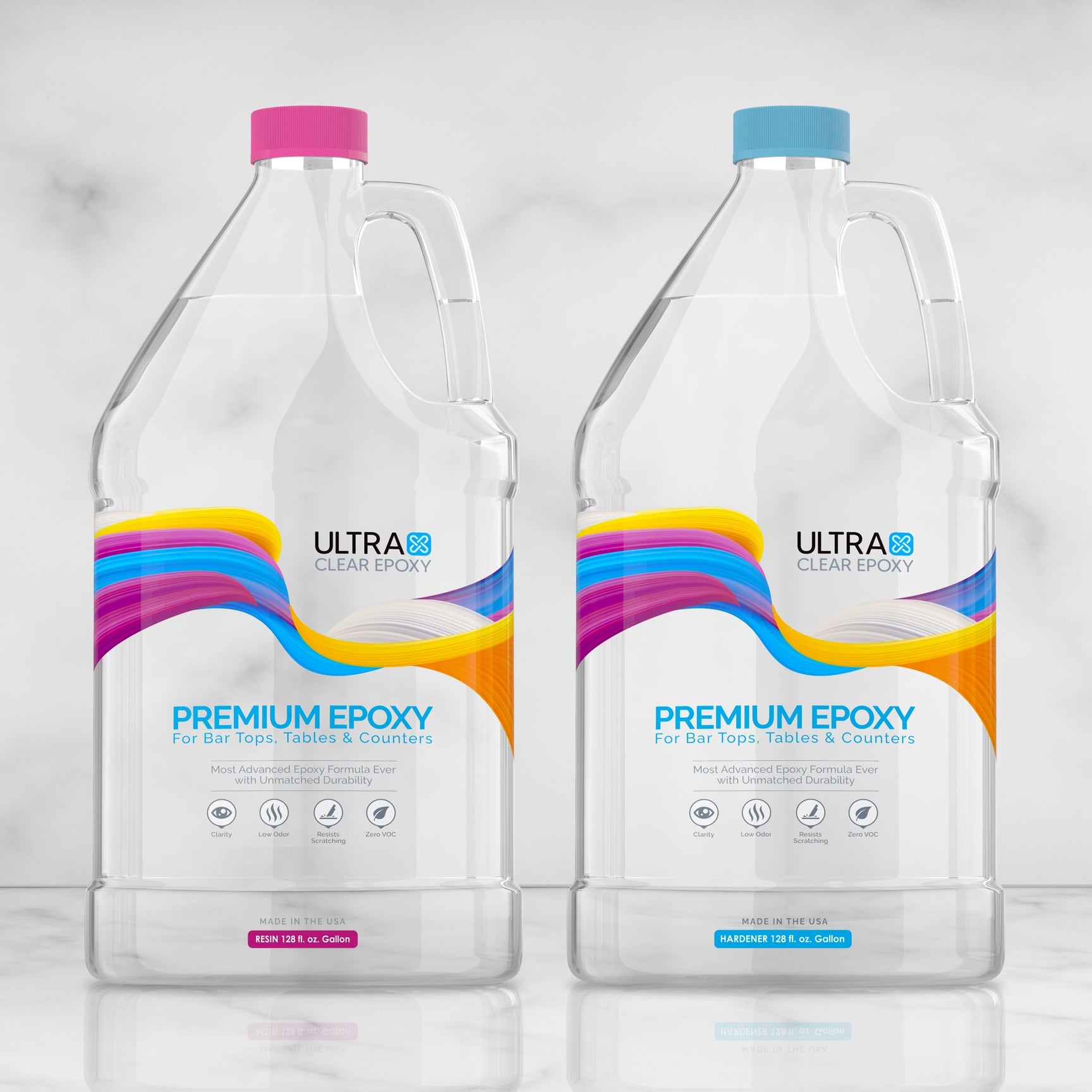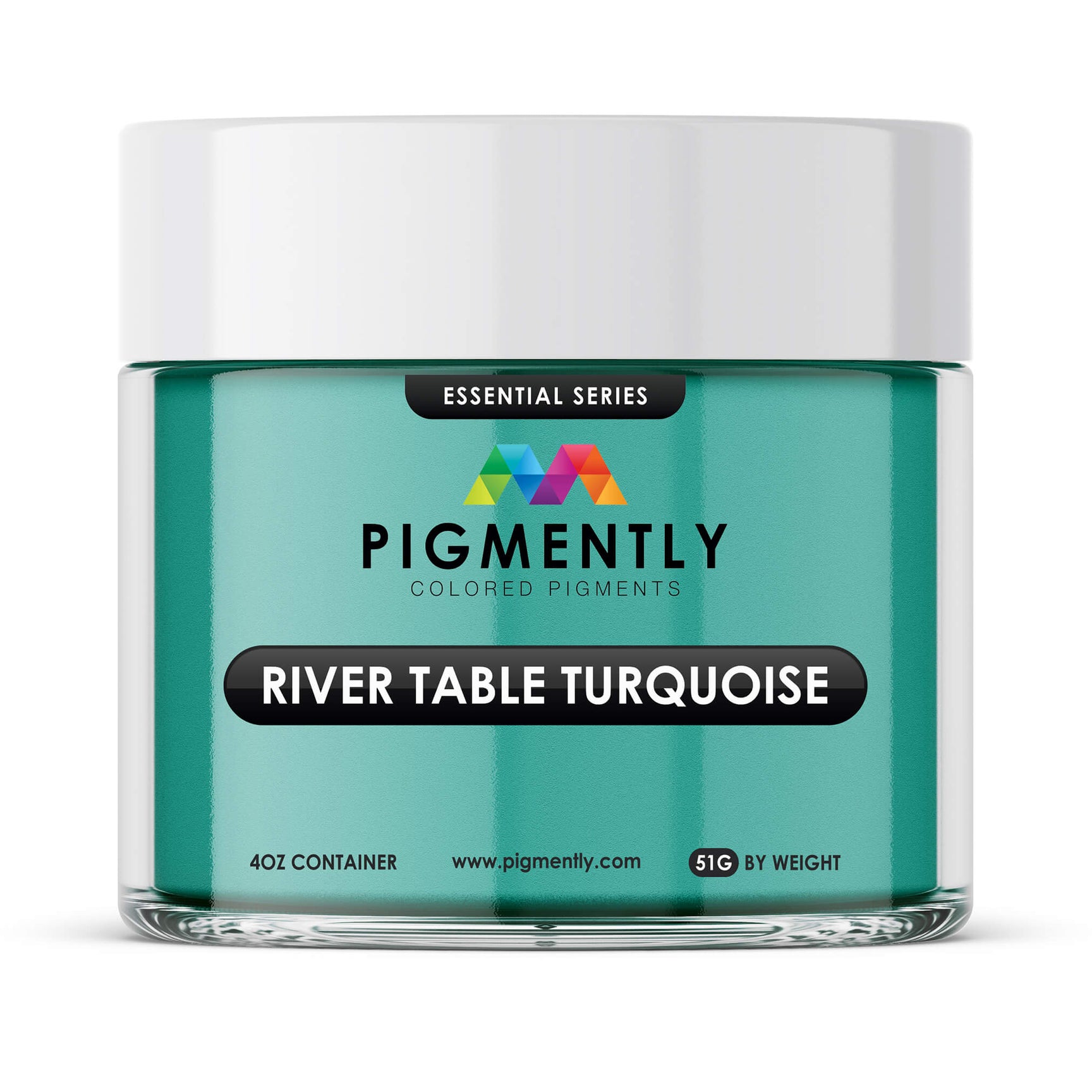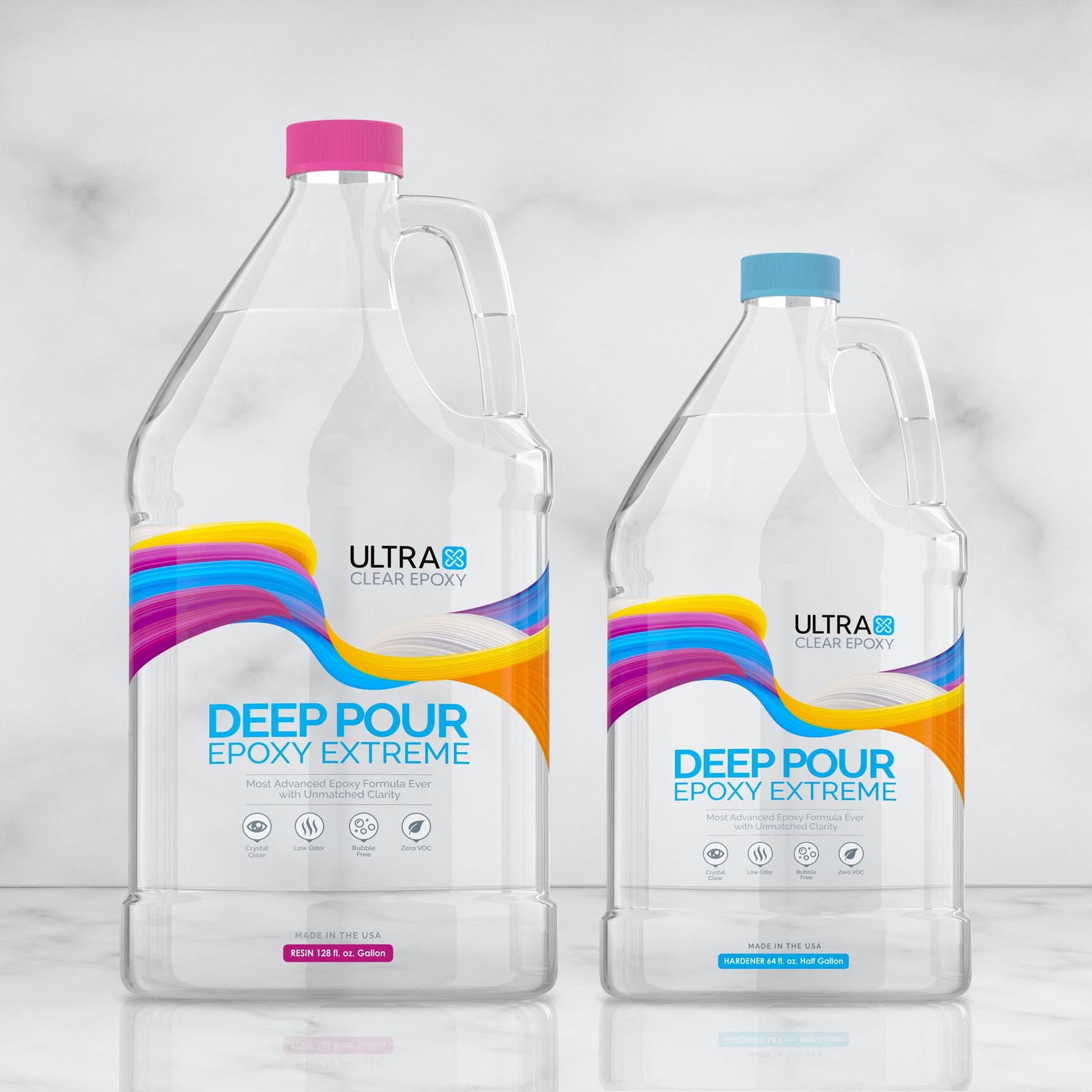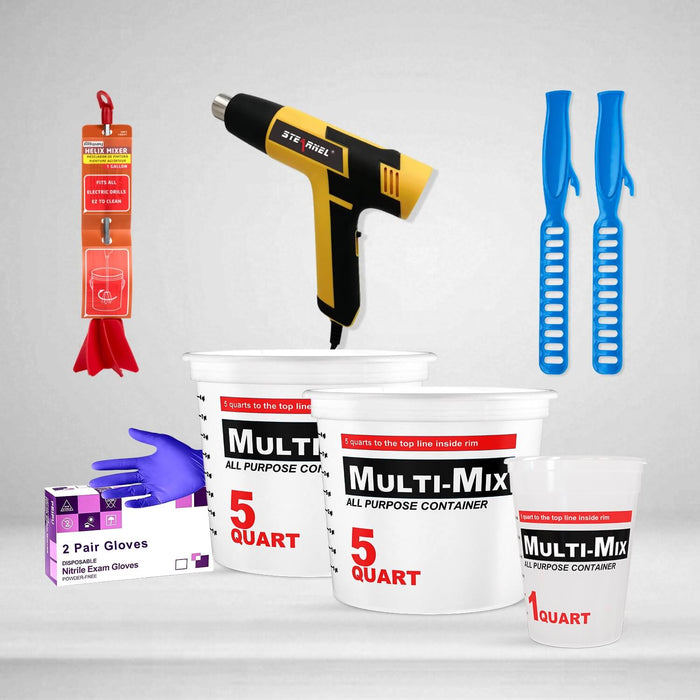Welcome to our guide for cleaning food-safe resin cups!
Since epoxy resin isn't the most intuitive substance, it's not unusual to have questions about how to clean it properly—particularly for food-safe epoxy projects like resin cups, tumblers, and dishes.
After all the hard work that goes into crafting something like a resin tumbler or cup, the last thing you'll want is to cause any damage by using the wrong cleaning chemicals.
In this brief article, we'll explain what not to do, then guide you through the methods we like to use for keeping our epoxy cups and other small resin items clean and usable.
How to clean resin cups, tumblers, and more
Before we begin, let's go over a couple rules about cleaning resin cups, tumblers, dishes, etc. These are just a couple of guidelines on what not to do so you can avoid common missteps.
Rule #1: Never use the dishwasher to clean resin cups.
Resin cups should be hand washed—never put your resin cups and tumblers through a dishwasher cycle.
Dishwashers work by greatly heating the water inside to weaken residue bonds and sanitize dish surfaces, and epoxy resin doesn't fare well in these extreme temperatures and can be damaged by the sheer intensity of the heat.
In fact, many different plastics handle high dishwasher heat poorly, which is why you'll often see plastic dishes say "top rack only". This is because the top rack doesn't get as hot as the bottom rack during a typical dishwasher cycle.
Other plastics may say "hand wash only", again due to the deformation caused by the high heat of a dishwasher cycle.
Rule #2: Avoid strong solvents when cleaning resin cups or dishes.
Some strong cleaning chemicals are capable of breaking down epoxy resin bonds. This includes vinegar and acetone.
Fortunately, most other strong chemicals aren't something you'd use with any food-safe item, such as lacquer thinner.

Method #1: Use dish soap and warm water.
Some of you may be surprised to find that resin cups and dishes can generally be cleaned in the same way as common dish materials (glass, ceramic, other types of plastic)—by using some dish soap and warm water.
However, we don't recommend using steel wool on resin. Instead, an abrasive sponge or scrub brush will usually do a great job of removing any residue from food or liquid, etc. without the risk of scratching.
You can make up a solution beforehand by filling a small basin with warm water and mixing in some dish soap.
You can also apply a bit of dish soap directly to your resin cup or a sponge/brush, then scrub vigorously and place under flowing warm water to lather and rinse.
This should be perfect for 99% of use cases.
Method #2: Soak them overnight (or for several hours).
Since epoxy is waterproof, you can also soak your resin cups and dishes overnight in a soapy solution. This will loosen up any food residue, grime, etc. that may have dried onto your dishes without affecting the resin surface.
Just fill a small basin/bucket in your kitchen sink with warm water and dish soap or detergent, then submerge your cups or dishes into it.
Come back several hours later, and you should be able to wipe away the residue and rinse the items clean.
This method also works for silicone molds used to make different resin items.

Additional Resources
Some additional resources that you may find useful:
- How to wash away resin and epoxy on your hands and skin - Knowing how to safely clean your skin when working with epoxy is important—after all, even the pros make mistakes occasionally.
- Guidelines for cleaning epoxy surfaces - Our article on cleaning other types of resin surfaces, such as countertops and table tops.
Have questions? Want advice? Contact us!
At UltraClear Epoxy, we strive to provide clear and accurate information in a way that's easy to understand.
If you have any questions about cleaning resin cups, dishes, or other resin items, please reach out to us. Our epoxy experts are ready to assist and can also provide project planning advice for beginners and epoxy enthusiasts alike.
You can contact us via phone or email here. During business hours, you can also text chat online with one of our epoxy specialists by clicking the Help button at the bottom right of your screen.











